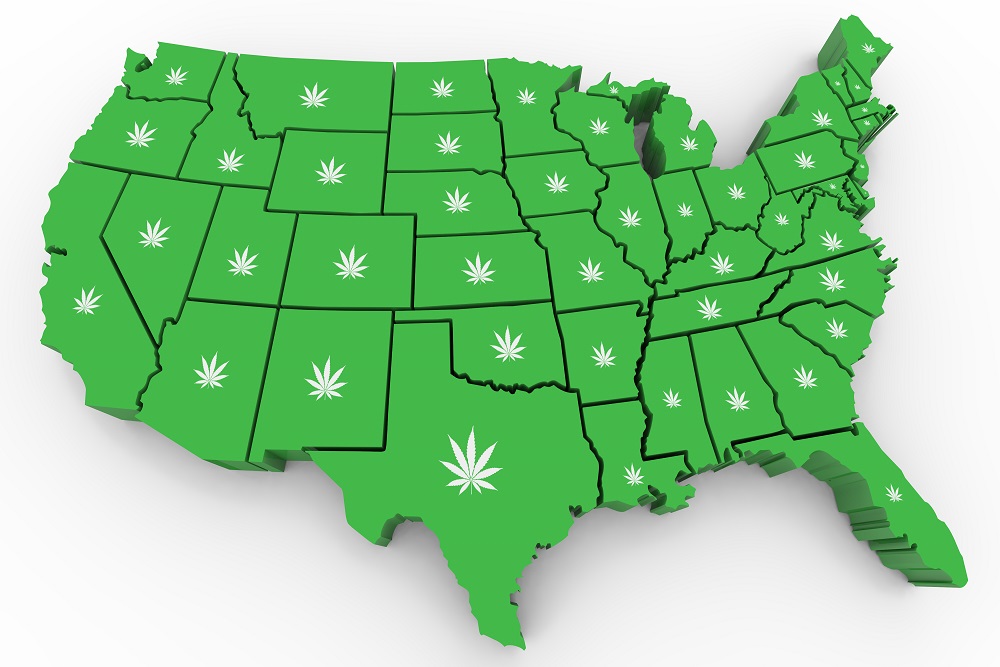How Long Before States Begin Working on Cannabis Reciprocity?

Do you have a driver’s license issued by your state? If so, every other state in the union recognizes it. You can drive across the country, legally, thanks to a legal doctrine known as reciprocity. Under this doctrine, the states have reciprocal agreements to honor one of its driver’s licenses. The same is not true for every type of license. It is also not true for medical cannabis cards.
Medical cannabis is now legal in thirty-six states and the District of Columbia. Furthermore, at least half-a-dozen hold-out states are in the process of implementing medical cannabis legislation. It probably won’t be much longer before all the remaining states are on board. That leads to a legitimate question: how long before they began working on cannabis card reciprocity?
In the small number of states where cannabis has already been decriminalized, reciprocity isn’t much of an issue. People can readily buy and possess cannabis products without the need for a state-issued card. But in states with more restrictive laws, like Utah for example, reciprocity is an ongoing problem.
Just Passing Through
Imagine you hold a medical cannabis card from Florida. You decide to visit family in Utah. Your Florida card allows you to legally possess and use medical cannabis during your stay in the Beehive State. But guess what? You still can’t purchase product at a Utah cannabis dispensary. You also cannot legally bring cannabis products into the state from elsewhere.
There is no reciprocity between Utah and Florida. That’s why you cannot use your Florida card to purchase cannabis in Utah. And for the record, the same applies to new Utah residents. Those who have lived in the state for less than 45 days can legally possess and use medical cannabis with a card from another state. They still can’t purchase it, and they must obtain a state card after 45 days to continue possessing cannabis legally.
While state lawmakers should be recognized for making an effort to address reciprocity problems, the rules they have put in place don’t make much sense. If outsiders cannot bring medical cannabis into the state and cannot purchase it from licensed dispensaries, being able to possess and use is a moot point.
Federal Law and Liability
There are two issues at the heart of the reciprocity problem. According to Pure Utah, a Payson cannabis pharmacy, the first is federal law. Because cannabis is still considered illegal under federal law, it is also illegal to transport it across state lines. Utah lawmakers included language to that effect in the regulations they crafted so as to not run afoul of that particular part of the federal statute.
Interestingly, other states have not enacted such restrictions. They allow patients to bring medical cannabis products in and take them out at will. But that raises the second issue: liability.
States do not want to be liable for issues pertaining to medical cannabis being brought in from other states. They also don’t want patients from other states trying to access their programs. If a patient’s home state has one set of regulations and the state they are visiting has a different set, there could be liability issues in the event something goes wrong. States just don’t want to deal with that.
Reciprocity probably won’t be tackled in earnest until Washington either reschedules cannabis or criminalizes it all together. And even then, there may be some differences between state laws that just cannot be reconciled. It will be a miracle if medical cannabis cards are ever subject to the same nationwide reciprocity as driver’s licenses.







